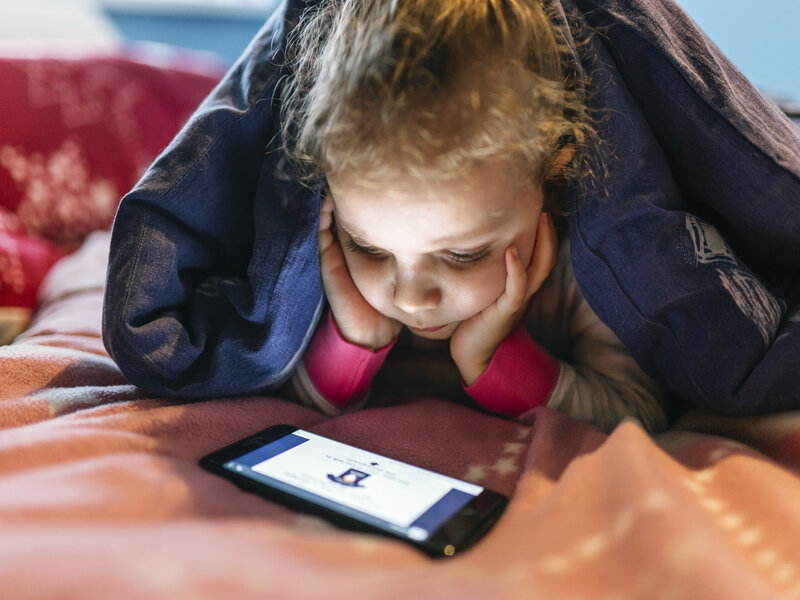Social awareness: 7 out of 10 teens fear misuse of their social media content
Teenagers are often thought to lack awareness of how digital technology works. We don’t consider them mature enough to understand the dangers of and the addictions that can come from using social media excessively, and we think—often for the best—that adults should play a mentoring, almost controlling role to keep teens from abusing and misusing them. Fortunately, though, this is not always the case.
Recent research by Telefono Azzurro and Doxa Kids found that more than 70% of 12-18-year-olds are very careful about sharing their content on social media. Practically speaking, this means that 7 out of 10 teens fear that their data, once posted on the internet, will be used inappropriately by others without their consent.
Research shows more awareness of one’s privacy
The study is entitled Between Reality and the Metaverse. Teens and Parents in the Digital World. It was conducted in Italy on a sample of 804 parents and 815 young people between the ages of 12 and 18. It offers insight into our relationship with the digital world, covering topics like gaming, mental health, data sharing, and privacy.
In addition to the figures we already mentioned, we have another piece of information to highlight: 65% of teens say they fear being contacted by adults they don’t know. The percentage rises to 70% for girls between the ages of 12 and 14. This figure really makes you think about how teenagers’ awareness of the possible risks online has significantly increased in recent years. Web grooming, especially of minors, has always been a major worry for parents. Online role-playing and video games are the most dangerous, in this regard, as they open the door to pedophilia because it’s so easy to contact minors through chat rooms and messaging platforms.
Social media and family: what role should parents play
In terms of content, they come across: 1 in 2 kids has seen inappropriate content, and 25% of them were upset by it. In 68% of cases, the most common content was violent, followed by pornographic (59%), and sexually explicit (59%).
In terms of their internet use, 50% of 12–18-year-olds spend an average of two to three hours a day online. As many as 14% of teens are “logged on” between four and six hours per day.
So, it’s normal to wonder how integral of a role the family plays in this dynamic between youth and the digital world. Viewing inappropriate content and excessively using the internet are two key indicators that make us realize how much our children, although aware of the risks online, cannot be left alone to surf the internet. The data provided by research is not very encouraging, unfortunately. After all, parents are a point of reference for their children, but, in the case of uncomfortable encounters online, only 19% of the time do kids look to their parents for guidance. 49% of us believe that children would talk about it with family, even if no such incident has occurred. These percentages are still too low, suggesting that the bridge of trust and openness between parents and children has yet to be strongly reinforced in this area.
Mental well-being and digital technology
The increasingly pervasive use of digital technology has had a major impact on our mental health. 27% of young people surveyed say they feel anxious or agitated without social media, while 22% would even feel lost without it.
In addition, social media content can bring about negative feelings. More than half of teens (53%) report that they have experienced bad feelings, like envy of others’ lives, by looking at others’ stories, pictures, and videos. 21% say they have felt inadequate, 18% different, and 10% like everyone else. The remainder feel lonely (12%) or angry toward others (9%). Mind you, this is nothing new. In a study done by the University of Pittsburgh, a correlation between social networks and negative feelings had already been confirmed. We should keep in mind that this study showed just how “subcutaneous” social networks had become in the lives of young Americans, becoming a pathological part of themselves. It also raised alarm bells: social media can cause addiction, like that of alcohol or drugs, so much so that by 2030, it is predicted to be the leading cause of disability in high-income countries.
Conclusions
Most teens don’t know how to defend themselves online. If it’s true that half of all teens have stumbled upon violent or sexually explicit content at least once, the question we must ask, in conclusion, is: Who can and who should protect teenagers from inappropriate content and the risks of the internet? Schools? Parents? Parental control filters? Public institutions?
We need new educational models involving different social actors; we need to accompany young people on their journey to adulthood.















